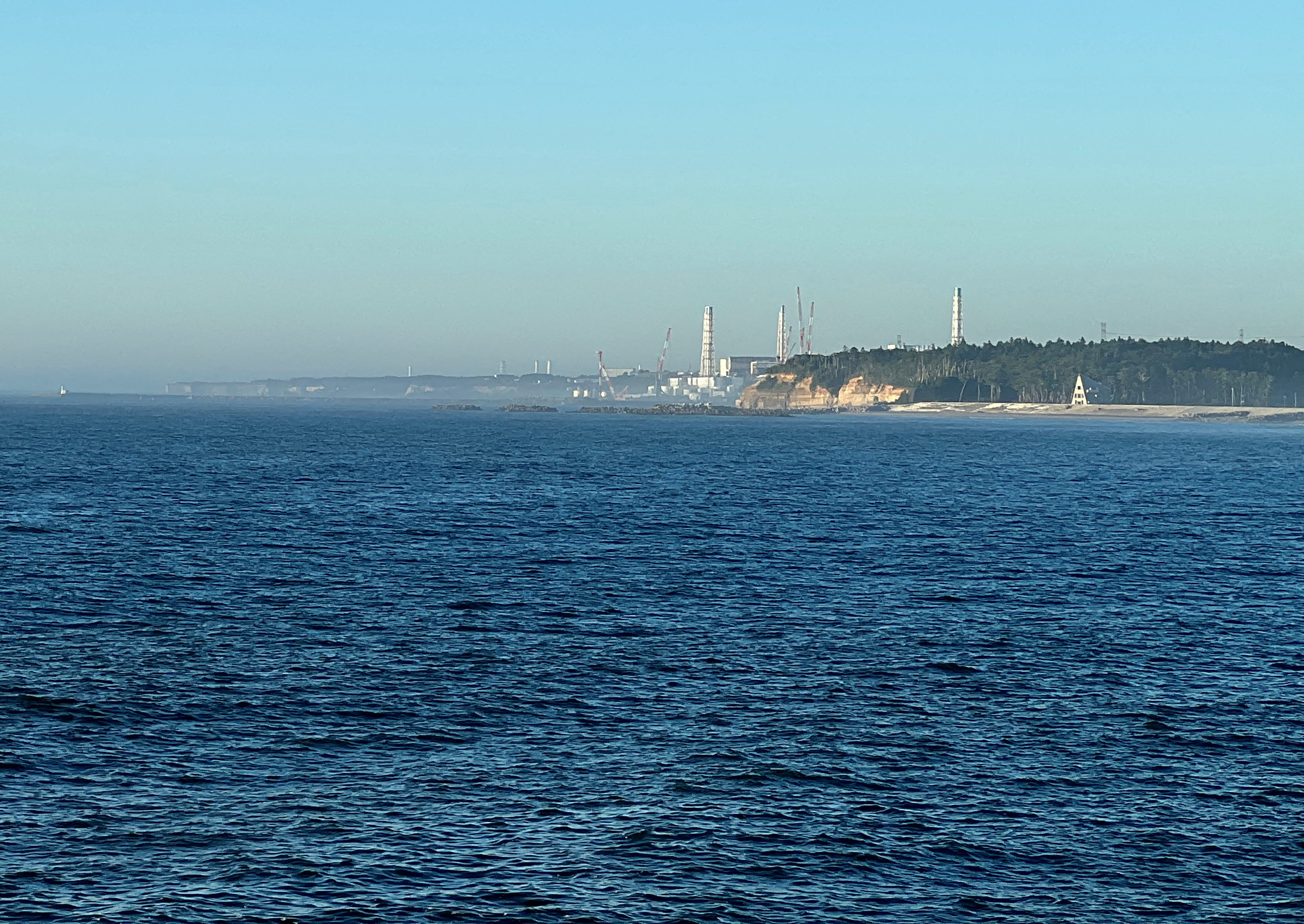
A view of the Fukushima Daiichi nuclear power plant after it started releasing treated radioactive water into the Pacific Ocean, seen from the nearby Ukedo fishing port in Namie town, Fukushima Prefecture, Japan, Aug. 25, 2023. REUTERS/Tom Bateman/File Photo Acquire Licensing Rights
TOKYO, Aug 28 (Reuters) – Japan said on Monday it was extremely regrettable that there were many instances of harassing phone calls from China regarding the release of treated radioactive water from the Fukushima nuclear power plant into the Pacific.
Japan started the water discharge on Thursday in a key step toward decommissioning the Fukushima plant, which suffered triple meltdowns after being hit by a tsunami in 2011 following a powerful earthquake. China strongly opposes the move.
“A lot of harassment phone calls believed to be originating from China are occurring in Japan … These developments are extremely regrettable and we are concerned,” Chief Cabinet Secretary Hirokazu Matsuno, the chief government spokesman, told a regular news conference.
Such calls prompted vice foreign minister Masataka Okano to summon the Chinese ambassador, Japan’s foreign ministry said.
In a statement, the ministry said the calls were also occurring at Japanese facilities in China, and urged the government to take appropriate action promptly and ensure the safety of Japanese citizens.
The Fukushima city hall started receiving calls with country code 86, which is for China, on Thursday, and the number of such calls exceeded 200 the following day, flooding phone lines and disrupting city employees’ ordinary work, a city official said.
On the same day, elementary and junior high schools in the city, 60 km (38 miles) northwest of the crippled plant, received 65 similar calls, he said.
When a person who understands Chinese took one of those calls, the caller made a comment to the effect that, “Why are you releasing tainted water into the Pacific Ocean, which is a sea for everyone,” the official said.
Other municipalities, hotels and restaurants have also been getting such calls since the day the water release began, domestic media said.
Reporting by Kiyoshi Takenaka in Tokyo, Martin Pollard in Beijing; editing by Jacqueline Wong and Mark Heinrich
Our Standards: The Thomson Reuters Trust Principles.

/cloudfront-us-east-2.images.arcpublishing.com/reuters/VY7IM3J7X5KK3KNYTET3MXJBH4.jpg)